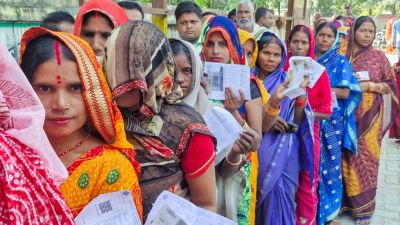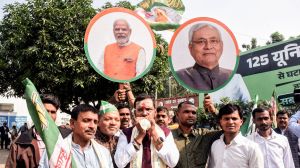Indian economic scene changing: IMF
NEW DELHI, MAY 7: The International Monetary Fund has sought more feedback from the Indian private sector for a better understanding of t...

NEW DELHI, MAY 7: The International Monetary Fund has sought more feedback from the Indian private sector for a better understanding of the reforms process.
IMF executive director for United States Karin Lissakers said the signals on the reforms process have not been very clear. "The Indian economic environment is undergoing rapid change," she said while speaking at an interactive meeting between eight IMF EDs, representatives of Indian industry, economists and academicians, organised by the Confederation of Indian Industry (CII) on Friday.
IMF executive director for India, Sri Lanka, Bangladesh and Bhutan M R Sivaraman led the delegation, the largest so far to visit India. Factors contributing to the industrial slowdown, the fiscal position, the role of FDI in India’s economic growth, role of the public sector and the capital account convertibility were among the issues raised by the delegation.
Assuring the IMF delegation that the reforms process in India would continue albeit slowly and cautiously, CII director general Tarun Das said that the recent moves towards global tariff structures would ensure the globalisation of the Indian economy.
Increasing awareness and adoption of practices such as the code of corporate governance and total quality management in the corporate circles, which is being spearheaded by CII in India would go a long way in making the Indian industry globally competitive, said Das.
Responding to the issues of outlook on private investment during the interactive session, industry representatives were of the view that after a difficult phase of an economic slowdown, the prospects for Indian economy had slowly started to look up.
The private sector, however, continues to face constraints, with infrastructure bottlenecks being a major constraint to growth, they added. The industry representatives were unanimous in their view that administrative and financial sector reforms needed to be undertaken urgently. Procedural delays and lack of transparent policies have to be addressed to give the much needed fillip to industry and help it achieve faster growth.
The eight-member team of IMF executive directors also visited Planning Commission to take stock of the ongoing economic reforms and emerging scenario in the aftermath of the launching of the economic liberalisation programme.
During a meeting, deputy chairman of the Commission K C Pant informed the visiting team that the Indian economy had shown steady growth during the past 25 years and that the GDP growth rate during the current year was likely to touch seven per cent.
Pant said growth rate in India was among the highest in the developing world, excluding China. “The slowness in decline in the population growth rate was the area of concern as it came in way of rapid economic growth,” said Pant. He pointed out that the major issue before the Indian planners was balanced growth to reduce social tensions.
On sustainability of economic reforms, he said there was a national consensus on the economic reforms initiated in 1991. However, while pushing forward reforms, the focus has to be on its impact on poverty and disparity. India has to keep its impact on poverty and disparity within manageable levels, he felt.
He pointed out that for sustained development, government needed to give more autonomy to the village councils. There were nearly 225 thousand village councils with nearly 35 per cent headed by women representatives. He also told the visiting team that a three-tier system was being established to ensure balanced growth coupled with improved delivery system.


- 01
- 02
- 03
- 04
- 05





























